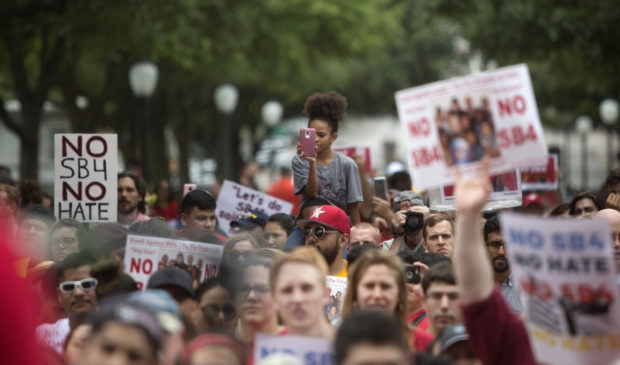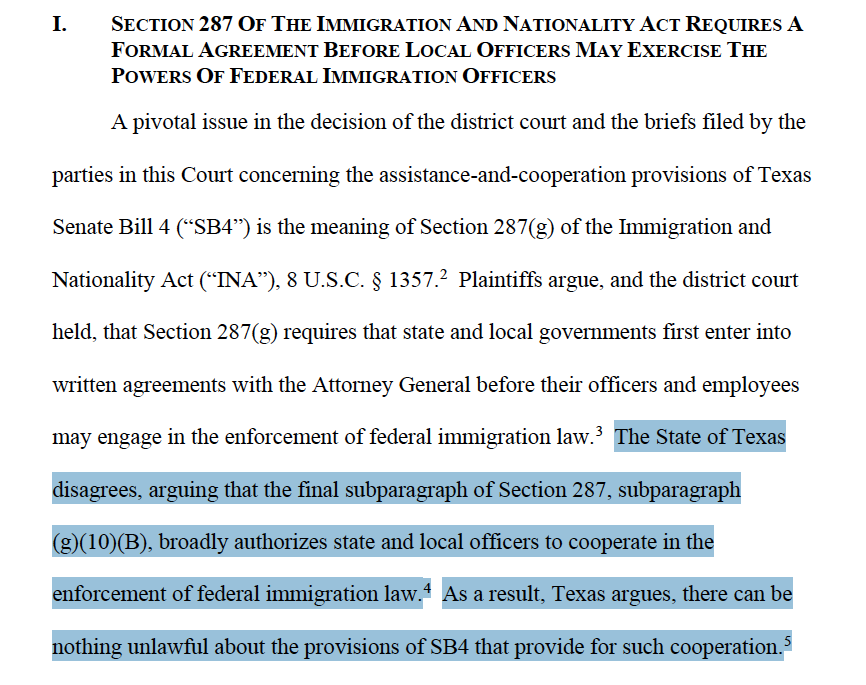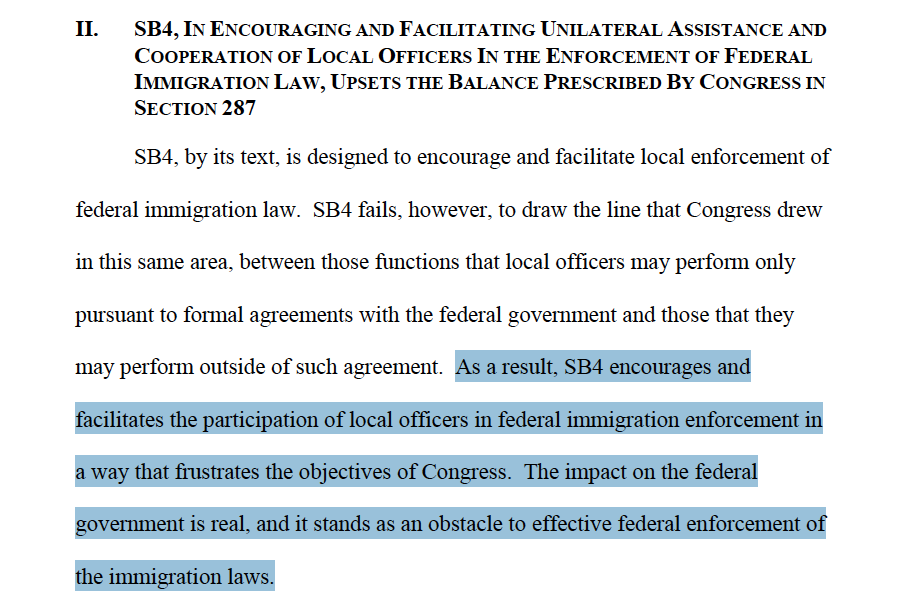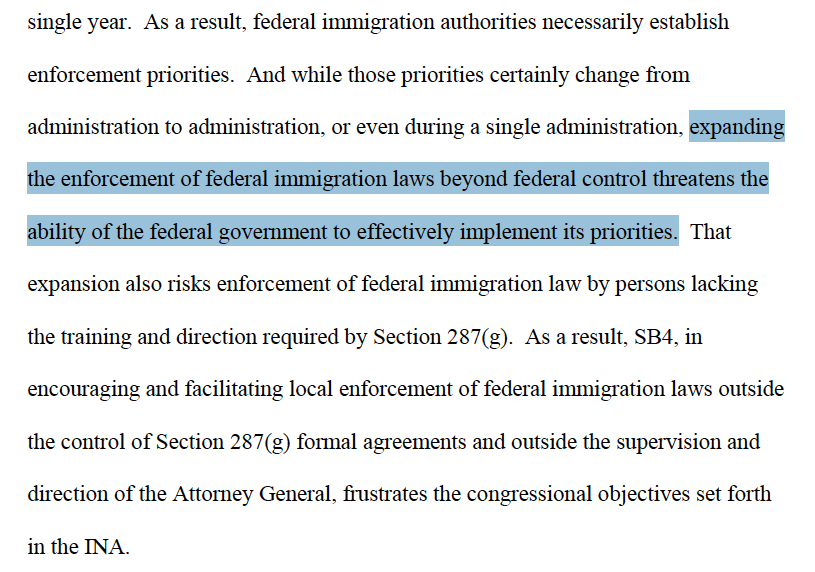Newsletter Signup
The Austin Monitor thanks its sponsors. Become one.
Most Popular Stories
- A once-banned type of building is back in favor – and the Planning Commission approves
- City facing a $33 million deficit for 2026
- SOS suing state agency over failure to provide information on MoPac expansion
- Staffing isn’t the only thing to blame for Austin’s slow 911 response times
- East Austin’s ‘wishbone’ bridge takes shape as concrete beams almost span Lady Bird Lake
-
Discover News By District

How three former federal immigration officials view Texas’ ‘sanctuary cities’ ban
Tuesday, November 7, 2017 by Audrey McGlinchy, KUT
The next chapter in the fight over Texas’ immigration enforcement law begins Tuesday, as attorneys on both sides of the case over Senate Bill 4, the so-called “sanctuary cities” law, head back to federal court. Judges for the 5th U.S. Circuit Court of Appeals in New Orleans will consider a temporary block placed on most of the law in August – that block was partially undone in September.
Thomas Saenz, president and general counsel for the Mexican American Legal Defense and Educational Fund, said the three-judge panel will consider “the entirety of the preliminary injunction – whether it was appropriate, should have gone further or should not have gone so far.”
Among reams of filings in the case sits this one: a statement from three former federal immigration officials against SB 4. In their argument, the men say SB 4 messes with the federal government’s ability to do its job as the enforcement arm of immigration law.
Two of the three men, Paul Virtue and Bo Cooper, served as general counsel for the Immigration and Naturalization Service under Presidents Ronald Reagan, George H.W. Bush, Bill Clinton and George W. Bush. The third man, Stephen Legomsky, served as the senior counsel to the Secretary of Homeland Security under President Barack Obama.
Their argument centers on Section 287(g) of the Immigration and Nationality Act, which describes how local law enforcement such as police officers can act as federal immigration agents.
The three former immigration officials argue that the federal government must oversee any local law agencies enforcing immigration law.
SB 4 penalizes local sheriffs who do not honor all requests from the federal government to detain suspected undocumented immigrants booked into local jails. Sheriffs face civil and criminal penalties. The law also punishes local law enforcement agencies, such as police departments, that have policies prohibiting officers from asking about immigration status.
Because of this, Virtue, Cooper and Legomsky argue that SB 4 “is designed to encourage and facilitate local enforcement of federal immigration law.”
This, the men argue, hurts the federal government’s ability to effectively do its job.
There is no timeline for when the three-judge panel must return a decision. Until then, the ruling handed down in September, which undid portions of the temporary block, remains in place. Following this ruling, Travis County Sheriff Sally Hernandez has gone back on a policy of honoring U.S. Immigration and Customs Enforcement detainers only in the case of high-level felonies; she is now honoring all ICE detainer requests.
This story was produced as part of the Austin Monitor’s reporting partnership with KUT. Photo by Jorge Sanhueza-Lyon/KUT News.
The Austin Monitor’s work is made possible by donations from the community. Though our reporting covers donors from time to time, we are careful to keep business and editorial efforts separate while maintaining transparency. A complete list of donors is available here, and our code of ethics is explained here.
You're a community leader
And we’re honored you look to us for serious, in-depth news. You know a strong community needs local and dedicated watchdog reporting. We’re here for you and that won’t change. Now will you take the powerful next step and support our nonprofit news organization?









